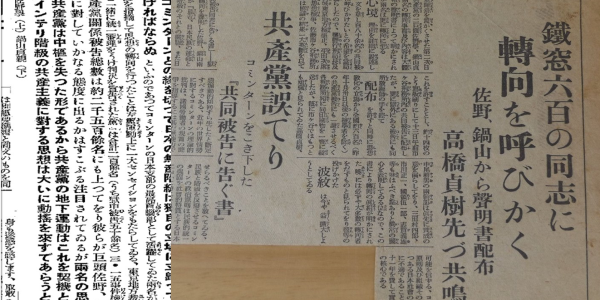EALC Brown Bag Series | Surviving State Authoritarianism: The Literature of Coerced Political Conversion (Tenkō) in Interwar Japan
EALC Brown Bag Series Lecture
The 1925 adoption of the Chian ijihō (Peace Preservation Law) created the perfect justification for the rounding up by Japan’s authorities of thousands of leftist, liberal, anti-establishment and anti-kokutai activists in 1928 and 1929. Japan’s slide into militarism and authoritarianism at the beginning of the 1930s and the start of the 15-Year War after the Manchurian Incident of 1931 were then accompanied by the forceful tenkō “political/ideological conversion” of all those arrested, as well as of many who followed suit albeit not imprisoned. Many of those who “converted” were leaders of the proletarian literature and arts movement who processed their imprisonment and “conversion” experience through literary narratives. Tentatively dubbed “tenkō literature”, these narratives, written roughly between 1934 and 1942, share several common characteristics. In addition to analyzing commonalities of their tropes and themes, in this talk we will also focus on one of these tenkō stories, Nakano Shigeharu’s Mura no ie (House in the Village, 1935).

